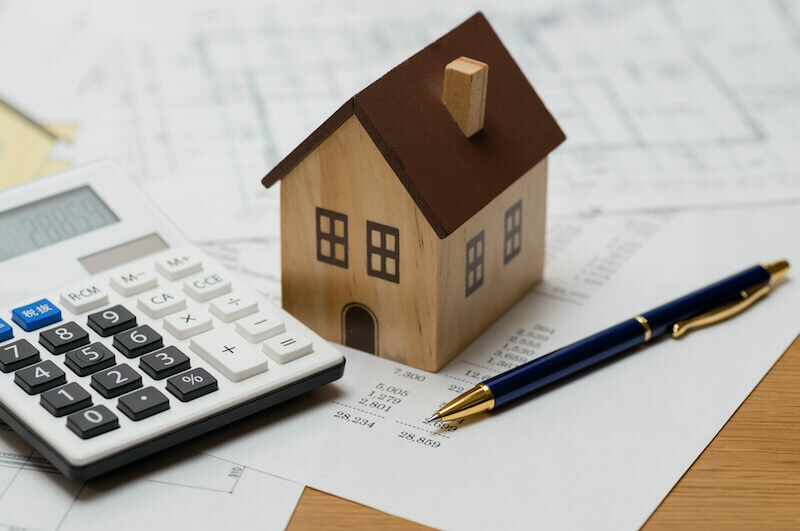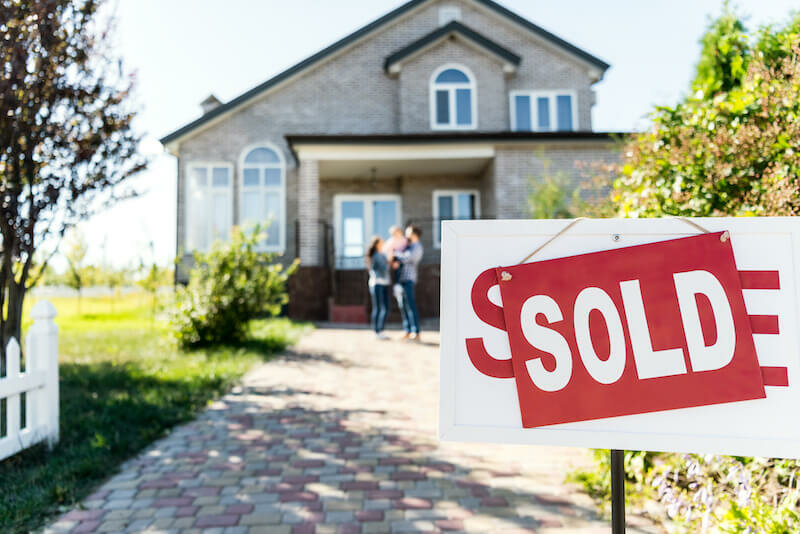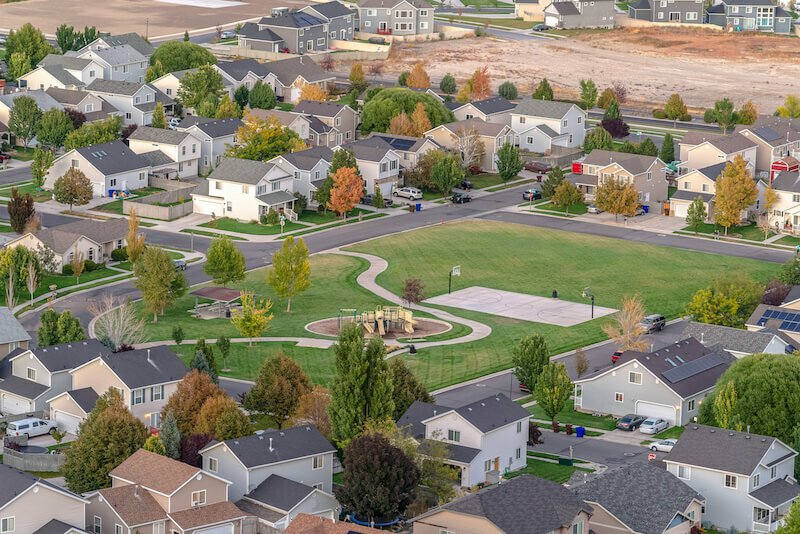The Minneapolis real estate market has continued the tendency established by national trends, indicating that things are improving. In particular, prices continue to grow owing to a severe shortage of availability, and demand stays strong notwithstanding previous increases. However, despite the fact that appreciation is now in its ninth year, real estate in Minneapolis is still fairly affordable.
Owning a property in Minneapolis is less costly than leasing one, which augurs well for local investors. Long-term investors, on the other hand, anticipate benefiting the most from the Coronavirus’s tailwinds. Rental properties seem to be the preferred exit choice in the Minneapolis real estate market right now.
Let’s examine the most current market trends as well as the Minnesota home market projection for 2022.

Average Home Price in Minneapolis
According to Realtor.com, the average price list of properties in Minneapolis, MN in the month of October 2021 was $299,900, leading to a -3.2% 12-month fall. The average pricing list per sq ft in this area was $215. Thus the average price of a house became $307,500. The Sell-to-List Amount Proportion is 100%, meaning that properties in Minneapolis, MN sold for roughly the asking price in the month of October 2021 on average. Minneapolis had a steady housing market, which indicates that demand and supply were balanced.
The most recent “Minneapolis Housing Market” report is presented below.
Source: Minneapolis Area REALTORS®
The Saint Paul real estate market is quite competitive. St. Paul real estate prices went up 12.0% over the previous year in the month of October 2021, with a median home price of $275K. Homes in Saint Paul are on the market for an average of 20 days, in comparison to 18 days in the previous year. 395 residences were sold in October of this year, a decline from 477 the previous year.
Due to a lack of inventory, days on the market sank while the average price soared, according to new home realtor statistics. In the whole state, the property market continues to outstrip supply, and sales prices have reached all-time highs. According to Minnesota Realtors’ October figures, the state’s median sales price increased 8.2% to $308,500.
The report depicts the residential real estate activity in Minnesota as a whole, including condos, townhomes, and single-family homes. Percentage changes are calculated using rounded figures. In the Minnesota residential property market, cost-effectiveness has also been a driving aspect. The Affordability Index, a national measure of home affordability, declined by 11.1% in October as mortgage interest rates plummeted.
High and Low Home Prices in Minneapolis
The Minneapolis housing market with its current developments are projected to be among the hottest in the country. It is also among the trendiest real estate markets for investing in rental properties.
Let’s look at Zillow’s price trends over the previous several years. The average home price in the Minneapolis-St. Paul-Bloomington Metro has climbed by about 93% since November 2011. (Zillow Home Value Index).
In the past year, property prices in the Minneapolis metro area have climbed by 13.6%. Since Minneapolis has a finite supply of homes, purchasers are sometimes forced to compete, resulting in higher prices or quicker sales, which benefit sellers. Demand outnumbers supply derived from the previous month’s huge housing market statistics, giving sellers a price negotiating advantage over buyers. There are considerably fewer homes on the market than there are active buyers.
- Saint Paul’s house prices have risen 10.7% (current = $275,264) in the last year and will continue to climb in the next year.
- The average home value in the Minneapolis-St. Paul-Bloomington Metro region is $349,595, up 13.6% over the past year.
- Minneapolis house prices have risen 6.5% (current = $321,732) in the last year and will continue to climb in the next year.
- According to Zillow, prices will increase by 11.4% in the next year.
While the effects of COVID-19 on the overall economy continue, real estate activity in many parts of the country, including Minnesota, is beginning to recover. Mortgage interest rates have been averaging around 3% since last year and are on their way to all-time lows, supporting strong buyer demand. Real estate activity in the Twin Cities region is increasing during this prime home-buying season.
In a balanced market, supply would be reduced to zero in five to six months. In terms of months of inventory, if the supply reaches five months of inventory, Minneapolis, or the whole Twin Cities housing market, may become a buyer’s market, but that won’t happen for the foreseeable future.
This neighborhood is severely skewed against sellers due to a persistent imbalance in supply and demand. During what is expected to be a strong summer selling season, property availability remains limited. Housing prices will grow at a faster pace as a result of this. Feel free to research more on the most expensive home sales in Minneapolis as well.
Mortgage interest rates for Minneapolis, MN, and the whole Twin Cities metro area are at an all-time low. As an outcome, this is an excellent time for them to enter the seller’s market and get their preferred deals. If buyer demand falls, we may see a positive influence on the Twin Cities region’s limited inventory while seeing a decrease in sales. If listings remain on the market for an extended amount of time, first-time buyers have a considerable edge in bargaining sales prices.
Buyers who join the market at this time should have more alternatives when it comes to selecting a house, and should take the chance to purchase their chosen offers, which would otherwise be forcibly taken in bidding battles by seasoned investors. Assessing your domestic market is a vital component of real estate investing, whether you’re trying to purchase or sell.
Best Areas to Live in Minneapolis
You’ll find everything in Minneapolis, whether you’re seeking sophisticated or comfortable meals, park time or playing, fashionable or classic, sun or snow. Minneapolis has over 80 neighborhoods to select from, so you’ve got your job cut out for you. Here are some of the greatest places to live:
- Fulton
- Loring Park
- North Loop
- Linden Hills
- Summit Hill
- Macalester-Groveland
- Downtown West
- Downtown St. Paul
Sale-to-list Price Ratio in Minneapolis
According to the Minneapolis/St. Paul Business Journal, a lack of new listings is helping to maintain sales activity in Minneapolis healthy, with properties selling quicker and for greater prices than ever before.
According to recent statistics from the Minneapolis Area Realtors Association, the economy is strengthening, unemployment is decreasing, and property values are rising. The typical house sales price increased 9.5% in November compared to the same time the previous year, with just 6,110 dwelling units for sale in a metro region of over 3.7 million people.
Key market metrics include the following:
- According to the most current Realtor.com data, the median listing price of a single-family house in Minneapolis is $294,400. (November 2021).
- The sale-to-list price ratio in Minneapolis is 100%, which implies that properties are selling for the asking amount on average.
- Fulton is the most expensive neighborhood in Minneapolis, with a median listing price of $595,500.
- The median number of days on market is 56.
- A home’s median listing price per square foot is $212.
- Whittier is Minneapolis’ most inexpensive neighborhood, with a median listing price of $187,500.
- A single-family house in Minneapolis has a median sales price of $295,000.
- As of November 2021, the Zillow Home Value Index (ZHVI) for Minneapolis is $320,905.
- Minneapolis home prices have risen by 5.7% in the past year.

Average Days On the Housing Market
According to a January reading from Realtor.com, the typical house lasted just 61 days on the market. That is the quickest rate Realtor.com has seen since tracking the metric started in 2016. It is 10 days less than the rate recorded in January 2021 and 29 days fewer than the rate recorded in 2017-20.
In other major areas, homes sold even quicker. The average in Seattle was just 39 days and 38 days in Las Vegas. In Denver, it took 35 days, while in Nashville it took 29 days. The number of days it took to sell a house in the South fell the most in a year. Meanwhile, areas such as Washington, D.C. Richmond, and Minneapolis showed a modest increase in time on the market.
Closings may take time, particularly given the market’s labor scarcity. Anecdotally, it is typical to hear that properties are going under contract in less than a week following many bids.
Competition appeared to be exceptionally high in January, which is often one of the slowest months in the property market. Presidents Day weekend is often the start of the spring market. Rising mortgage rates this month may have frightened prospective buyers, prompting them to speed up their searches before rates priced them out.
Endnote
Minneapolis, like most other markets around the nation, has seen a dearth of available inventory forcing up prices in a very short period of time. However, Minneapolis real estate remains in great demand. Demand does not seem to be slowing down anytime soon, thanks in large part to a strong economy and the biotech sector. Minneapolis real estate investors may anticipate the city weathering the present Coronavirus storm and emerging stronger.
If you’re selling a house in Minneapolis, we are cash home buyers in Minneapolis. Additionally, we buy homes in Minnesota, saving you the hassle that comes with making repairs.
Buyers may anticipate less stress this year as fresh inventory enters the market. If the pandemic diminishes later this year, people will begin to return to downtown Minneapolis, freeing up some of the inventory that was unavailable last year.

